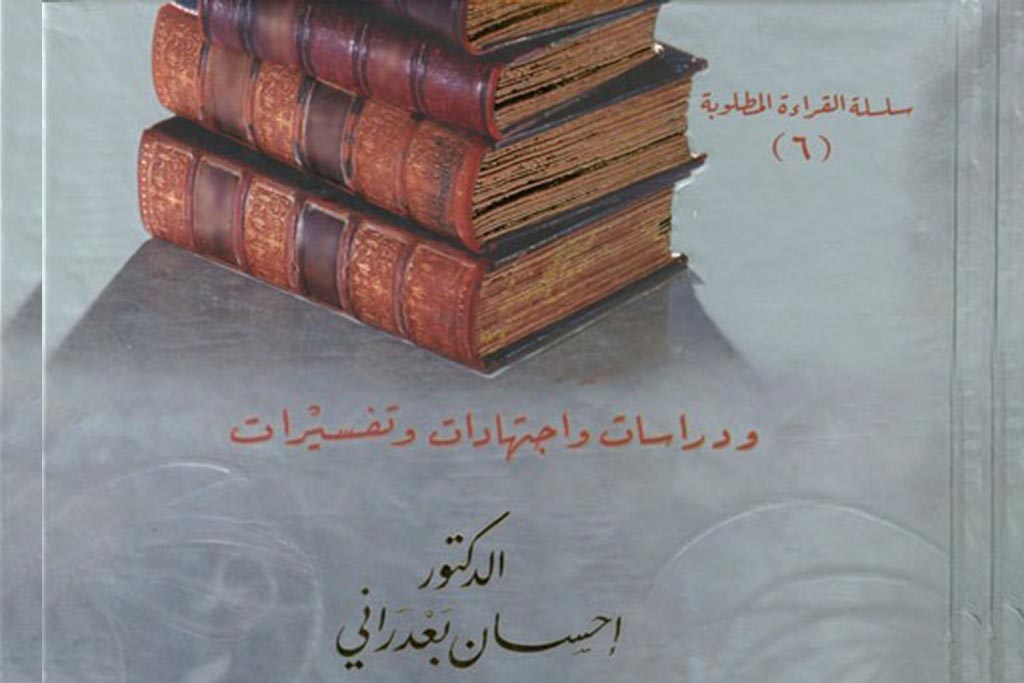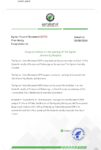8- The Quran and its Fiqh: Dr Ihssan Baadarani

The Quran and its Fiqh:
Allah the Almighty says: “Indeed, this Quran guides to that which is most straight and gives good news to the believers who do righteous deeds that they will have a great reward.” (Al-Isra, 9).
He also says: “A Quran in Arabic, without any crookedness that they might become righteous.” (Az-Zumar, 28).
And He says: “And indeed We have set forth for people in this Quran every kind of parable. But man is, in most things, contentious.” (Al-Kahf, 54).
The Prophet Muhammad, peace be upon him, said: “I have left among you two things which, if you adhere to them, you will never go astray: the Book of Allah and my Sunnah.” (Reported by Al-Hakim from Abu Huraira, Kanz al-Ummal).
The Quran is the foundation, and the Fiqh of the Quran is its application. The Fiqh of the Quran may be close to or far from the Quran in varying degrees.
The Fiqh of the Quran reflects the Quran and should not replace it. Distinguishing between these two is essential in our approach.
The Quran is the speech of the Lord of mankind, and the Fiqh of it comes from human interpretation. While the Quran remains constant, humans may vary in their closeness or distance from it through their Fiqh, making errors and corrections, but these do not alter the permanent principles of the Quran.
When humans err in their Fiqh of the Quran, it reveals their mistakes. When they deviate, it exposes their deviation. This was evident in the Quranic response to the companions’ actions during the Battle of Uhud, representing the noblest of men in the sight of Allah, a reality that is beneficial for us. We learn that exonerating humans does not equate to distorting the Quran. It is better to keep the Quran intact and blame those deserving of blame, regardless of who they are, for the Quran is greater and more enduring than mankind.
Allah says: “If a wound has touched you, be sure a similar wound has touched the others. Such days (of varying fortunes) We give to men and men by turns; that Allah may know those that believe, and that He may take to Himself from your ranks martyr-witnesses (to Truth). And Allah loves not those that do wrong. Allah’s object also is to purge those that are true in Faith and to deprive of blessing Those that resist Faith. Did ye think that ye would enter Heaven without Allah testing those of you who fought hard (in His Cause) and remained steadfast?” (Al-Imran, 140-143).
The Quran is a steadfast methodology around which human life revolves. The degree to which humans understand and apply the Quran corresponds to how accurately they can be described.
Revealing errors or shortcomings in human Fiqh of the Quran does not indicate a flaw or deficiency in the Quran itself.
The Quran does not grant infallibility or perfection to anyone after the Prophet’s death. However, humans, including Muslims, often attribute infallibility to certain individuals, finding it difficult to acknowledge that those they revere can be right and wrong simultaneously.
The Quran is one thing, and the Fiqh of it is another. The jurist is not the Quran but is subject to it, striving to understand, recognize, and uncover its purpose, spirit, and essence. No matter how learned a jurist is, he remains human and cannot encompass everything in the Quran. It is sufficient for him to contribute even a little, which is the true appreciation of human capacity.
The aim is to keep the Quran pure and unblemished. The jurist should be known by the Quran, not the other way around. It is correct to link Fiqh to the Quran, but incorrect to link the Quran to Fiqh.
Can the Fiqh of jurists be a standard for the Quran?
If we regard the Fiqh of esteemed and highly respected scholars, whose vast knowledge of the Quran seems complete, as the ultimate understanding beyond which no further insight into the Book of Allah is possible, then further exploration of the Quran would be futile, constituting an infringement upon the Quran and a disservice to these eminent jurists.
Did any of them claim that the doors to further jurisprudential understanding were closed after them?
Is this how we repay them for their significant efforts and diligence?
Imam Malik said, “Everyone is subject to having their statements accepted or rejected, except the occupant of this grave,” referring to the Prophet Muhammad’s grave while teaching in the Prophet’s Mosque in Medina.
Imam Al-Ghazali’s statement, “Nothing is more possible than what has been,” does not apply to the Fiqh of jurists as some might claim, but rather indicates that
no creation can match the Creator’s innovation in all things.
Allah says: “And (He has created) horses, mules, and donkeys, for you to ride and as an adornment; and He creates what you do not know.” (An-Nahl, 8).
And He also says: “This is the creation of Allah. So show me what those other than Him have created. Indeed, the wrongdoers are in clear error.” (Luqman, 11).
If Fiqh could encompass the Quran, then the progress of jurisprudential thought would cease, for nothing beyond the complete understanding of the Quran would remain, and pens would be lifted, ink would dry, and records would be closed.
Fiqh is but a step on the infinite path of the Quran. It is a mistake to equate Fiqh with the Quran itself. While Fiqh is part of Islam, it is not the entirety of Islam.
Viewing Fiqh as the Quran blocks the path to innovation and the new, stalling the movement of life and history.
Future generations will mock us if we adhere solely to the standards of past generations. Are we to remain fixed on the standards, miswak, and black seed of Medina? Should we stop at the means and neglect the goals and purposes?
If the Quran is to remain, why the dispute? Each jurist has his own Fiqh, and no one has the right to impose his Fiqh upon us; otherwise, his Fiqh would become the Quran.
We say: No one has done this before. Imam Malik rejected such a notion because he knew that the Quran and his Muwatta are distinct.
Exempting ourselves from innovation in this era, if the reasons for it arise, means nothing but that we were created in vain, or that we are dead in the bodies of the living.
As long as the Quran is the standard of Fiqh, what then is Fiqh?
Dr. Muhammad Anbar, may Allah have mercy on him, stated in his message to us:
Fiqh means understanding. We say, ‘The man has understood’: he understands. We say, ‘So-and-so does not understand’: he does not understand. We say, ‘He has been questioned thoroughly in knowledge’: he has been thoroughly examined in knowledge. Thus, Fiqh means knowledge of something—any thing—and anyone knowledgeable about something is a jurist. Fiqh also means reaching knowledge of the unseen through knowledge of the evident. Then, the term ‘Fiqh’ became predominantly associated with knowledge of the law. Linguists say that Fiqh is derived from ‘opening’ and ‘splitting.’ If we wish to understand something, we must split and open it to know its essence and understand what is within it. If Fiqh means splitting and opening, and we do not split or open the object, how can we understand it? Why is Fiqh called so? Is it not because we split and open the concealed object to understand and recognize it, gaining insightful knowledge that leads us to its secrets and the hidden measures within its essence, enabling us to grasp its purpose, goal, and spirit?
We need to understand everything from atoms to galaxies, including the Quran from its beginning to its end. At this critical juncture, may we discern the right path before the morning comes.
We wonder: In times past, was there new Fiqh that enabled the scholars of the Ummah’s predecessors to find in the Quran all they needed to advance it from one state to another, despite changing times and circumstances, to pursue benefits, avert harms, solve problems, and improve the condition of the Ummah, such that nothing new or emergent remained?
Did the previous jurists grasp the Quran’s objectives and goals in their time, only to find reasons to deviate from their previous rulings in certain places or times to issue different rulings elsewhere and at other times?
Imam Shafi’i, may Allah be pleased with him, had two schools of thought: one old in Baghdad and a new one in Cairo when he moved there in 199 Hijri.
Muhammad ibn al-Hasan ibn Farqad, who spread the knowledge of Abu Hanifa, had a school in Baghdad and another in Marw.
A jurist’s departure from his initial opinion is not only due to recognizing the correct from the incorrect or the emergence of evidence that was previously hidden but often due to the jurist’s travels across regions and his observation of differing conditions, customs, and circumstances within the same nation, making both of his opinions in Fiqh valid.
We constantly need new Fiqh that encompasses all aspects of life’s ever-renewing, changing, and evolving events, with the Quran providing appropriate remedies and treatments, even as time, place, people, and events change.
The fixed aspects of rulings remain fixed, regardless of changes in time and place, while the evolving aspects of rulings change with time
and place, because the Quran came to achieve the continually renewing interests of the servants, and this change is linked to the influencing factor, which may be a moral, material, specific, general, or other circumstance.
And we conclude: The Quran contains Fiqh for emergencies, Fiqh for necessities, Fiqh for new circumstances, and Fiqh for the interests of the servants, which brings benefit, goodness, ease, and lifts hardship, and it is the Fiqh of well-being by divine excellence.”






